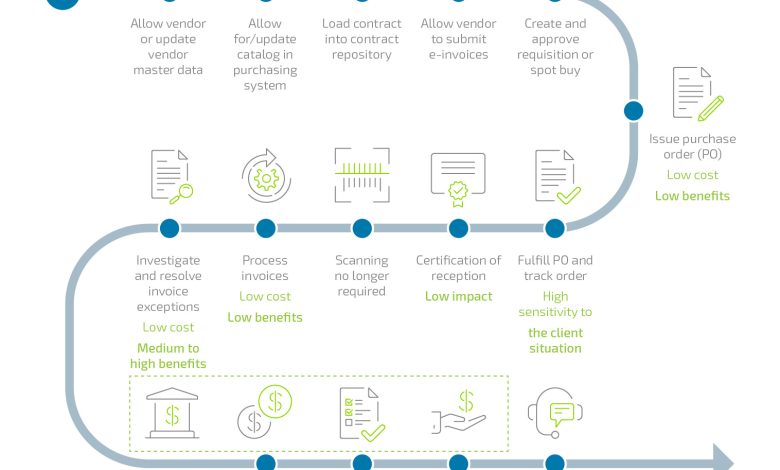Blockchain in Supply Chain Management: Use Cases and Benefits

- Introduction to Blockchain Technology
- Challenges in Supply Chain Management
- Benefits of Implementing Blockchain in Supply Chain
- Real-world Use Cases of Blockchain in Supply Chain
- Improving Transparency and Traceability with Blockchain
- Future Trends in Blockchain Technology for Supply Chain Management
Introduction to Blockchain Technology
Blockchain technology is a decentralized, distributed ledger system that allows for secure and transparent transactions across a network of computers. This technology enables the recording of data in a way that is immutable and tamper-proof, providing a high level of trust and security. In the context of supply chain management, blockchain has the potential to revolutionize the way businesses track and manage goods as they move through the supply chain.
One of the key features of blockchain technology is its ability to create a single, shared source of truth for all parties involved in a supply chain. This means that everyone from suppliers to manufacturers to retailers can access the same information in real-time, reducing the risk of errors, fraud, and delays. By using blockchain, companies can track the provenance of products, verify the authenticity of goods, and ensure compliance with regulations.
Blockchain technology also has the potential to streamline processes and reduce costs in the supply chain. By automating tasks such as inventory management, payments, and contract execution, blockchain can help companies save time and resources. Additionally, the transparency and traceability provided by blockchain can help companies identify inefficiencies in their supply chain and make data-driven decisions to improve performance.
Overall, blockchain technology offers a range of benefits for supply chain management, including increased transparency, security, and efficiency. By leveraging blockchain technology, companies can create a more resilient and agile supply chain that is better equipped to respond to challenges and opportunities in today’s fast-paced business environment.
Challenges in Supply Chain Management
One of the main challenges in supply chain management is the lack of transparency and traceability throughout the entire process. Traditional supply chain systems often rely on manual data entry and paper-based documentation, leading to errors, delays, and inefficiencies. This lack of visibility makes it difficult to track products from their origin to the final destination, increasing the risk of fraud, theft, and counterfeiting.
Another challenge is the complexity of managing multiple stakeholders involved in the supply chain, including suppliers, manufacturers, distributors, retailers, and customers. Coordinating activities among these different parties can be challenging, especially when each one operates on a different system or platform. This lack of interoperability can lead to data silos, duplication of efforts, and miscommunication.
Furthermore, supply chain management faces the challenge of ensuring compliance with regulations and standards, such as safety, quality, and sustainability requirements. Non-compliance can result in fines, legal issues, and damage to reputation. However, monitoring and verifying adherence to these regulations can be difficult without a transparent and secure system in place.
Benefits of Implementing Blockchain in Supply Chain
Implementing blockchain technology in supply chain management offers a wide range of benefits that can revolutionize the way businesses operate. Some of the key advantages of using blockchain in the supply chain include:
- **Increased** transparency: Blockchain **technology** allows for real-time tracking of products **throughout** the supply chain, providing **visibility** into the movement of goods from **manufacturer** to consumer.
- Enhanced security: The **immutable** nature of blockchain **ensures** that data **stored** on the network is **secure** and **tamper-proof**, reducing the risk of fraud and **counterfeiting**.
- Improved traceability: With blockchain, **businesses** can trace the **origins** of products **back** to their source, **helping** to verify **authenticity** and **compliance** with regulations.
- Streamlined processes: By **automating** manual **tasks** and **eliminating** intermediaries, blockchain **technology** can **reduce** paperwork, **speed** up transactions, and **lower** costs.
- Enhanced **collaboration**: Blockchain **facilitates** **secure** data sharing **between** **partners** in the supply chain, **promoting** **collaboration** and **improving** **efficiency**.
Overall, the **implementation** of blockchain in supply chain management **can** **transform** **operations** by **increasing** **transparency**, **enhancing** **security**, **improving** **traceability**, **streamlining** processes, and **promoting** **collaboration** **across** the supply chain.
Real-world Use Cases of Blockchain in Supply Chain
Blockchain technology has numerous real-world applications in supply chain management that can revolutionize the way businesses operate. Some of the key use cases of blockchain in supply chain include:
- **1.** **Transparency:** Blockchain provides a transparent and immutable ledger that allows all parties involved in the supply chain to track products from their origin to the final destination. This transparency helps in reducing fraud, counterfeiting, and errors in the supply chain.
- **2.** **Traceability:** With blockchain, each product can be assigned a unique digital identity that can be traced throughout the supply chain. This enables businesses to track the movement of goods in real-time, ensuring authenticity and quality control.
- **3.** **Smart Contracts:** Blockchain technology allows for the automation of contracts through smart contracts. These self-executing contracts automatically enforce the terms and conditions agreed upon by the parties involved, reducing the need for intermediaries and streamlining the supply chain process.
- **4.** **Inventory Management:** Blockchain can improve inventory management by providing real-time visibility into the movement of goods. This helps businesses optimize their inventory levels, reduce stockouts, and improve overall efficiency in the supply chain.
- **5.** **Supplier Management:** Blockchain can enhance supplier management by creating a decentralized database of suppliers and their performance history. This helps businesses make informed decisions when selecting suppliers and ensures compliance with regulations and standards.
In conclusion, blockchain technology offers a wide range of benefits for supply chain management, including increased transparency, traceability, automation through smart contracts, improved inventory management, and enhanced supplier management. By leveraging blockchain in the supply chain, businesses can streamline operations, reduce costs, and build trust with their partners and customers.
Improving Transparency and Traceability with Blockchain
Implementing blockchain technology in supply chain management can significantly enhance transparency and traceability throughout the entire process. By utilizing blockchain, companies can create a secure and immutable record of every transaction and movement of goods, from the point of origin to the final destination.
One of the key benefits of blockchain in supply chain management is the ability to provide real-time visibility into the status and location of products. This increased transparency allows stakeholders to track the movement of goods at every stage, reducing the risk of fraud, theft, or counterfeit products entering the supply chain.
Furthermore, blockchain technology enables the creation of smart contracts that automatically execute predefined actions when certain conditions are met. This feature can streamline processes such as payments, customs clearance, and quality control, leading to greater efficiency and cost savings for all parties involved.
Future Trends in Blockchain Technology for Supply Chain Management
Blockchain technology is continuously evolving, and its application in supply chain management is expected to see significant advancements in the future. One of the key future trends in blockchain technology for supply chain management is the increased integration of Internet of Things (IoT) devices. These devices can provide real-time data on the location and condition of goods as they move through the supply chain, enhancing transparency and traceability.
Another emerging trend is the use of smart contracts in supply chain management. Smart contracts are self-executing contracts with the terms of the agreement directly written into code. By automating processes such as payments and compliance, smart contracts can streamline operations and reduce the risk of fraud or errors in the supply chain.
Furthermore, the adoption of blockchain consortiums is expected to grow in the future. Consortiums allow multiple stakeholders in the supply chain to collaborate on a shared blockchain network, enabling secure and transparent information sharing. This can help to improve trust among partners and streamline processes such as inventory management and product tracking.
Overall, the future of blockchain technology in supply chain management looks promising, with advancements in IoT integration, smart contracts, and consortiums expected to drive efficiency, transparency, and trust in supply chain operations. As businesses continue to explore the potential of blockchain technology, we can expect to see further innovations that revolutionize the way supply chains are managed and optimized.



